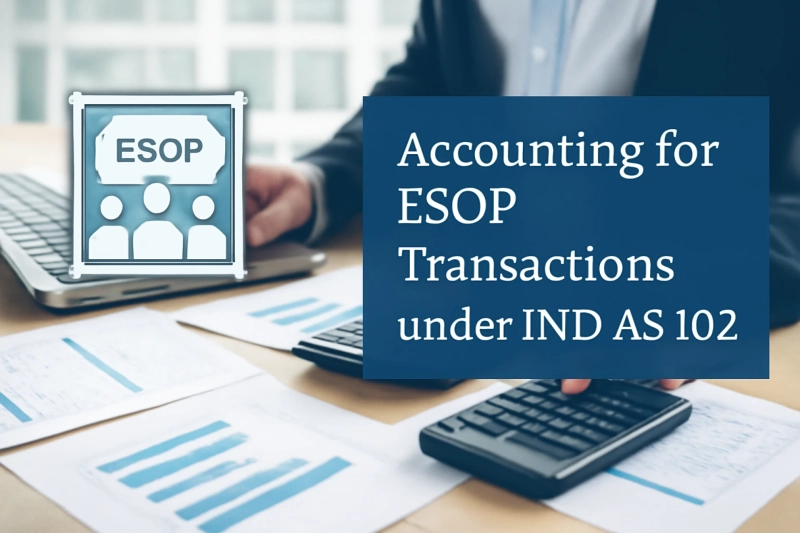What ESOP Accounting Covers
Accounting for ESOP transactions addresses recognition, measurement, and disclosure of equity- and cash-settled share-based payments, aligning with IND AS 102 and ICAI’s Guidance Note for non-Ind AS entities. It ensures expenses are reflected in profit or loss and equity/liabilities, capturing the cost of employee services received in exchange for options or shares.

Standards at a Glance
- IND AS 102 applies to equity-settled, cash-settled, and choice-of-settlement share-based payments, including ESOPs, RSUs, ESPPs, and SARs for employees and vendors.
- ICAI’s Guidance Note prescribes principles for companies on AS/IGAAP, replacing the earlier ESOP-only note and covering non-employee share-based payments too.
Recognition and Measurement
- For equity-settled grants to employees, measure fair value at grant date and recognize expense over the vesting period with a corresponding credit to equity.
- For cash-settled awards (e.g., cash SARs), recognize a liability measured at fair value at each reporting date until settlement, with changes through profit or loss.
Vesting, Forfeiture, Modifications
- Recognize expense on a straight-line or graded basis over vesting, adjusting for expected and actual forfeitures of service conditions as per policy choice under the standard.
- For cancellations/settlements, recognize immediately the amount that would have been recognized for the remainder of the vesting period; treat additional payments as buybacks or modifications per guidance.
Valuation Methods
- Fair value commonly uses option-pricing models like Black–Scholes or Binomial, reflecting volatility, risk-free rate, dividend yield, and expected life per valuation guidance.
- For non-employee awards, measure at fair value of goods/services when received if that is more reliably measurable than the equity instrument’s fair value.
Tax Considerations
- ESOP exercise benefits are taxed as perquisites in the employee’s hands with employer TDS and Form 16 reporting; capital gains apply on subsequent sale per Indian tax rules.
- Employer treatment of ESOP expense as deductible salary cost has judicial and practical precedents; ensure documentation and timing align with payroll and tax filings.
Journal Entry Flow
- During vesting: Dr Employee compensation expense; Cr Equity/Share-based payment reserve for equity-settled awards, proportionate to vesting.
- On exercise (equity-settled): Dr Cash (exercise price), Dr SBP reserve; Cr Share capital; Cr Securities premium; adjust for any modifications or cancellations as required.
Disclosures
- Disclose terms, number and weighted-average exercise prices, valuation inputs, expense recognized, and movements in outstanding options as mandated by IND AS 102.
- For IGAAP entities, mirror disclosures per ICAI Guidance Note to ensure transparency and comparability in financial statements.
How We Help
- Policy design, plan documentation, and cap table alignment; valuation (Black–Scholes/Binomial), expense schedules, and quarterly close support under IND AS/IGAAP.
- End-to-end implementation: TDS workflows, payroll integration, disclosures, and audit-ready documentation for compliant ESOP accounting and reporting.


